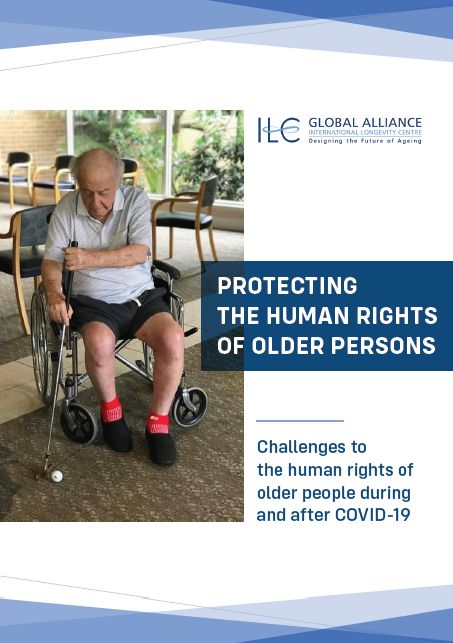Comunities and Housing

Providing decent housing in times of demographic change represents a key challenge for policy-makers worldwide.
Among older people, the provision of decent housing that reflects changes in individual health and mobility is crucial to maintaining the societal participation and quality of life of older people. Similarly, adapting communities and facilities to reflect the changing age profile of residents is necessary if we are to encourage older people to remain active citizens. Younger people also face challenges in negotiating adequate housing, which could have far-reaching demographic consequences if left unchecked. Work across the ILC Alliance continues to explore these issues – from exploring innovations in housing and care schemes (ILC-Netherlands), to lifetime neighbourhoods (ILC-UK) and the future of living independently (ILC-USA) – and is continuously updated here.
The 19th Public Health and Occupational Medicine (PHOM) Conference was held on 23-24 October 2025 in Singapore, attended by Ms Susana Concordo Harding, Senior Director of the International Longevity Centre Singapore (ILC-S), Tsao Foundation.
18th November 2025
The International Longevity Centre Global Alliance is delighted to be approved as an Affiliate of the World Health Organization Global Network of Age Friendly Cities and Communities.
20th June 2025
Jikka House: an innovative senior living in Japan
We interviewed two older Japanese women who had moved from Tokyo to Izu Highland, a popular retreat for city dwellers, to build their private house and restaurant. They contribute to building a community by serving lunch and delivering meals to local residents.
July 2022
The “What Do Older People Want from their Healthcare?” project, conducted by the National Ageing Research Institute (NARI) on behalf of the Victorian Department of Health (DH), Australia, provides valuable insights into what older Victorians want, need and expect across each domain of ageing and highlights how this changes across the care continuum.
20th May 2022
Everyone thrives in an inclusive age-friendly society
The Netherlands Scientific Council for Government Policy (WRR) recently put a magnifying glass on elderly care in four countries: Japan, England, Germany and Denmark. One of the researchers is Tineke Abma, professor of Participation of Older People at the Leiden Medical University Centre and Executive-Director of Leyden Academy on Vitality and Ageing. What lessons can be learned from this research?
22nd April 2022
Stereotype approach to elderly migrants does not do justice to diversity
The specific cultural background of older migrants does not appear to determine their care wishes and needs. The mutual diversity is great, which means that wishes and needs are very personal and partially depend on where and how someone has lived.
August 2021
Creating a socially just, inclusive and age-friendly city in Newcastle, Australia
The Hunter Ageing Alliance and the City of Newcastle came together in August 2021 to facilitate a community engagement workshop on the topic of developing an Age Friendly City.
5th August 2021
ILC-GA Position Statement on COVID-19
Following a meeting of its members on Thursday, 7 May 2020, the ILC Global Alliance has prepared a Position Statement on COVID-19.
7th May 2020
The experiences of seniors during the Corona/Covid-19 crisis
The Leyden Academy on Vitality and Ageing and ILC-Netherlands research project focusses on the impact, measures and restrictions of the corona virus on the senior population. The project intends to focus on how a diverse group of seniors (aged 60+) experience the virus and the measures taken. How do they perceive the risks and how does is impact their daily lives?
15th March 2020
New Urban Agenda adopted by UN member states
From the 17th – 20th October 2016, ILC Brazil participated in the third United Nations Conference on Housing and Sustainable Urban Development (UN Habitat III) in Quito, Ecuador.
24th November 2016
Developing Age-friendly Cities in Brazil
On July 29th the City of Veranopolis (RS) in the south of Brazil launched its Age-friendly Action Plan based on rigorous research with older people. The project is being developed as part of a public/private partnership between ILC-Brazil and CPFL Energia SA.
8th August 2016
El Dia, one of the most read newspapers of the Dominican Republic invited Dr. Rosy Pereyra, President of ILC-DR, Vice President of INPEA and one of the pioneers of geriatrics in the country, to talk about the situation of older adults in a space denominated Colloquium of El Dia to which every week an important person of the Dominican society is invited.
4th August 2016
25th Anniversary of the United Nations International Day of Older Persons
This year’s celebration of the 25th anniversary of International Day of Older Persons (UNIDOP), in anticipation of the third United Nations Conference on Housing and Sustainable Urban Development (Habitat III) to be held in 2016, focused on the impact of the new urban environment on older persons, as well as the impact of older persons on the new urban environment.
13th November 2015
The ILC Global Alliance in Brazil
Last week, members of the ILC Global Alliance participated in a series of events organized by the International Longevity Centre – Brazil.
28th October 2015
Globally, COVID-19 has led to debilitating effects and posed significant human rights challenges for older persons.
This Discussion Paper collates the findings of 10 ILCs within the ILC Global Alliance on the subject of housing for older people.
A first-of-its-kind consensus report addresses the challenges facing both consumers and policymakers when considering solutions for independent living.
The purpose of this ILC-USA report is to gain an understanding and encourage further research on the importance of satisfaction and well-being for older adults making transitions in their residential living arrangements.
The preliminary study into Innovative housing and care schemes has been conducted by Jacques Allegro (member of the Executive Board of ILC NL) and Ger Tielen (Director of ILC NL).
An ILC-UK collection of expert essays exploring how the 'lifetime neighbourhoods agenda' for housing and the built environment can respond to the economic downturn.
A discussion paper accompanying 'The Age of Inheritance' and exploring what this research means for public policy including inheritance tax, the property market and debate on how to pay for an ageing population.
A guide for use in the development of regional housing strategies, published jointly by ILC-UK and the Department for Communities and Local Government.
A report on a pilot study towards a health intervention under the Study to Understand and Foster the Functioning and Involvement of Contributive Elders (SUFFICE) project has been released.
This discussion paper explores how a more age-friendly vision of public spaces and community could boost social engagement, good health and the chances of 'active ageing' for all.












